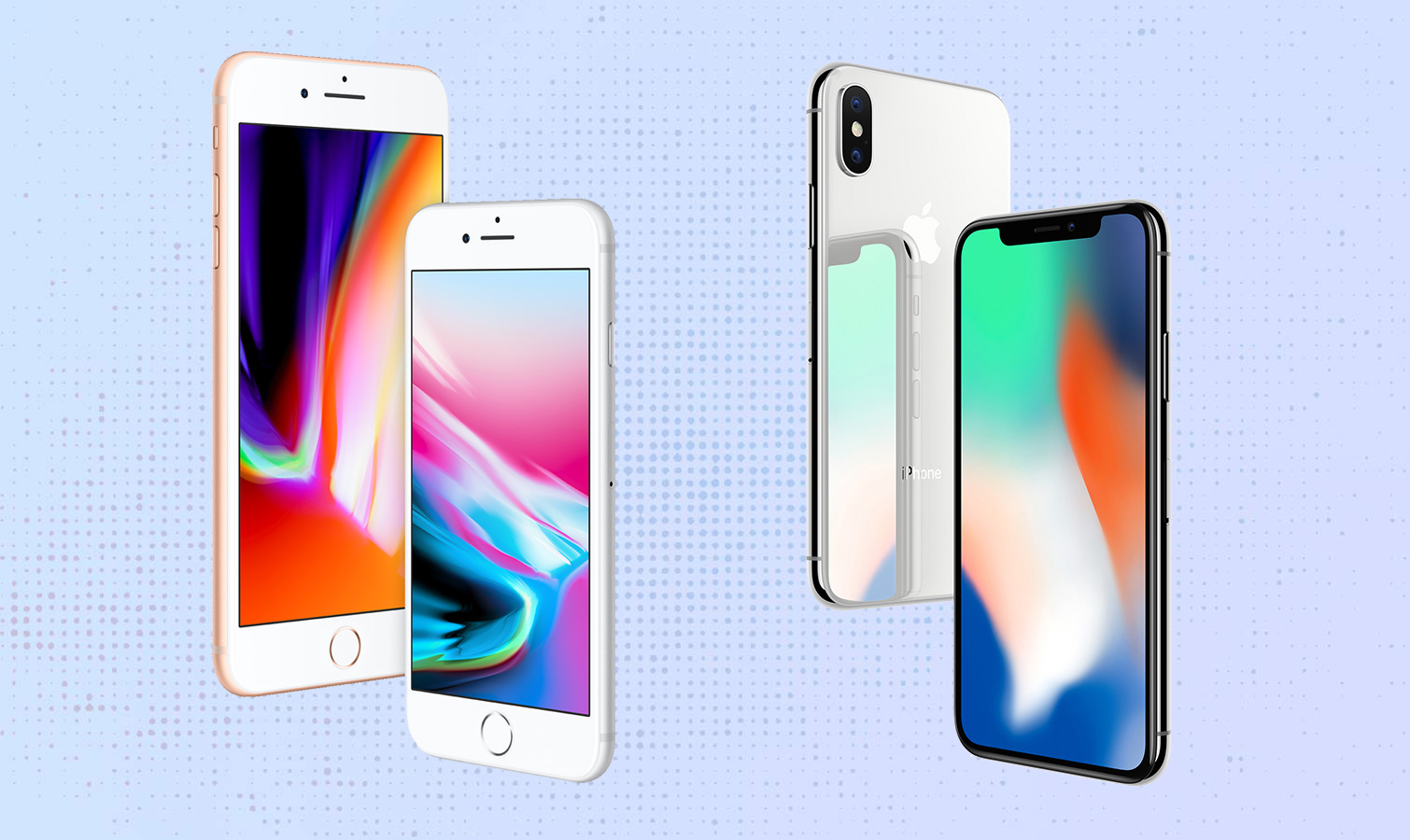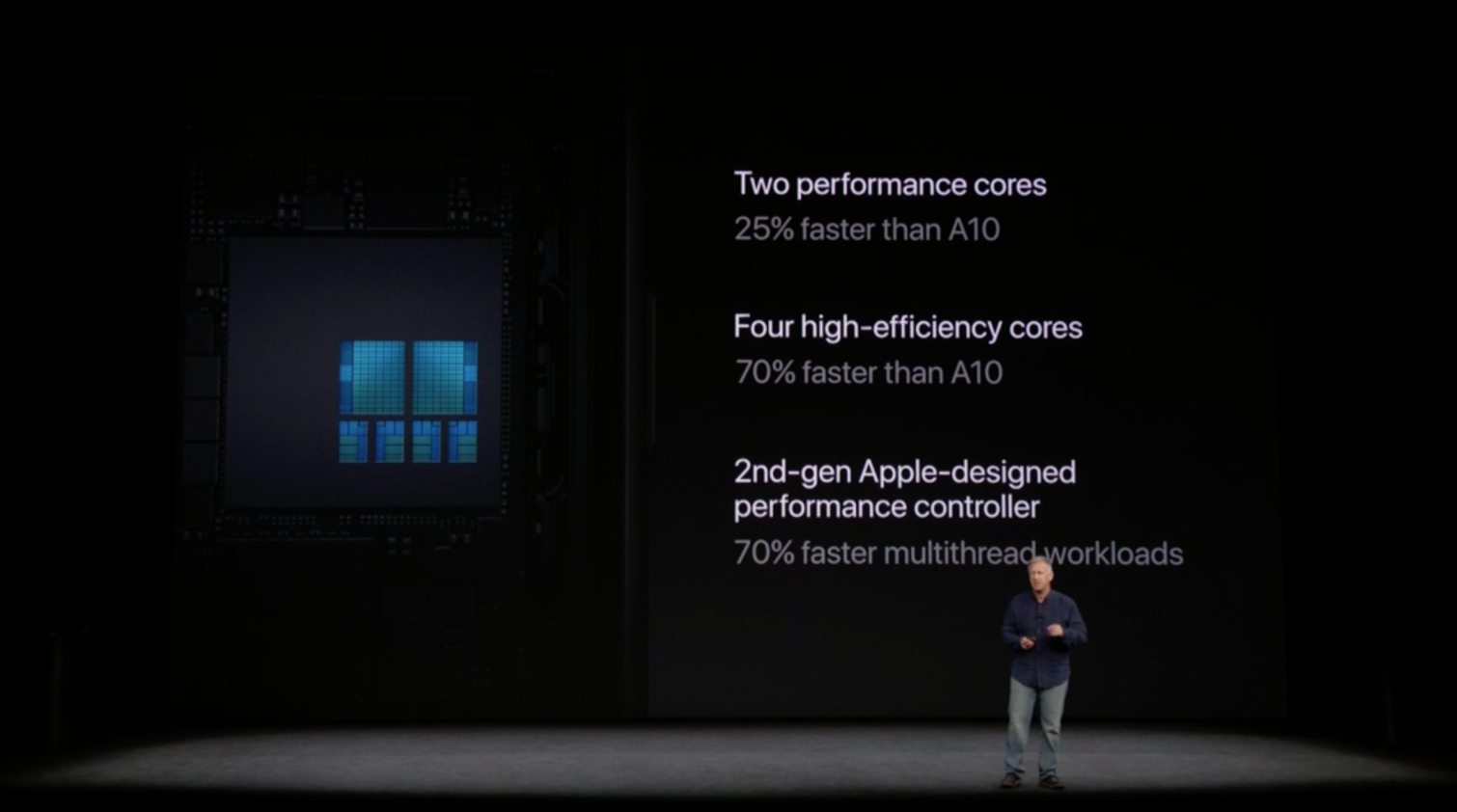iPhone X, 8 Leaked Benchmarks Blow Away Every Other Phone
Leaked benchmarks show that the iPhone 8 and X run on a CPU that makes every other smartphone look like it's in slow-mo.
It looks like Apple's new iPhones are about to blow away the competition, as usual. Leaked benchmark numbers published online position the iPhone X and iPhone 8 as the fastest smartphone out there, and even faster than some PCs with Intel's 7th Gen Core CPUs.

According to a scorecard posted to Geekbench.com, a handset with the name iPhone10,5 scored a 9,959 in the multi-core Geekbench 4 test. That trounces the 6,564 from the Galaxy Note 8, and even beats the 7,287 from the Intel Core i5-7200U-based Dell XPS 13 from late 2016.
MORE: iPhone X Hands-on: The iPhone, Nearly Perfected
The smartphone in question is rocking an ARM processor that is likely Apple's A11 Bionic CPU with 3GB of RAM. We expect those specs to be in both the iPhone 8 and iPhone X.

At its Sept. 12 event, Apple revealed that its $999 iPhone X, $699 iPhone 8 and $799 iPhone 8 Plus use a processor called the A11 Bionic. The new processor supposedly provides increased speeds of up to 70 percent, which is seen in quad-core activities. Dual-core tasks should only see a 20 percent uptick.
The A11 Bionic is a six-core processor, and its four efficiency cores are 70 percent faster than the previous generation A10 Fusion chip. Apple's new A11 chip should also be more efficient, which is why the iPhone X is expected to last up to 2 hours longer than the iPhone 7.
Apple's new chip isn't just faster and more efficient than previous generations: it's also smarter. The A11 Bionic features a neural engine, a piece of hardware that's dedicated to the machine learning that the iPhone needs for tricks such as Face ID and Animoji.
Sign up to get the BEST of Tom's Guide direct to your inbox.
Get instant access to breaking news, the hottest reviews, great deals and helpful tips.
See all of our coverage of Apple's new phones, including a breakdown of how the iPhone X compares to the iPhone 8 and iPhone 8 Plus.

Henry is a managing editor at Tom’s Guide covering streaming media, laptops and all things Apple, reviewing devices and services for the past seven years. Prior to joining Tom's Guide, he reviewed software and hardware for TechRadar Pro, and interviewed artists for Patek Philippe International Magazine. He's also covered the wild world of professional wrestling for Cageside Seats, interviewing athletes and other industry veterans.
-
83jaysonlee Benchmarks are good and all, but Apple's sloppy UI and gimmicky features keeps it well behind Android.Reply -
marcuswatt30 Apple always waits till competitors release, steal their ideas and add their own spin. iPhone buyers who hate Samsung are putting money in their pockets anyways cause they bought Samsung screen. LolReply -
a116 Lol typical broke Android users with their garbage OS always complaining about pricing. Find me an android flagship device that can record clear audio in loud concert environments, with decent OIS both front and rear cameras, the fluid performance of iOS and with the latest updates as and when they are released...Reply
To date there is no single android device which satisfies the above criteria. They are typically missing a one or more of the aforementioned. People buy Apple devices because they are reliable and work. Simple. -
varase You make it sound like Android is this one big pool, but it's really about five or six operating systems, each with successive release enjoying a slightly better set of APIs and services.Reply
What's the adoption rate of Oreo? .5%?
The truth of the matter is that Tango was a train wreck because it required specialized hardware and getting two Android handset makers - desperate to differentiate themselves from their rivals - to put in the same hardware to create a common platform was doomed to fail, let alone getting every flagship maker out there to cooperate.
So Apple comes out with computationally intensive ARKit - but Android handsets don't have the oomph that the A series chips impart - so ARCore will be by necessity be a watered down version of *that*.
There is a rapidly developing gulf between the A-series devices and the SnapDragons/Exynos/Kirins which are pretty much based on stock ARM cores, and as that gap widens so will the gap between the types of high intensity computing tasks they can run.
Android users smirk and grin and brag about the "true multitasking" on Android, but don't seem to realize that that text editor and that weather app and all those other apps running in the background are sapping CPU power and memory from the frontmost task, whereas iOS concentrates their more powerful processors mainly on the app which has user focus, allowing for performance that seems almost miraculous.
